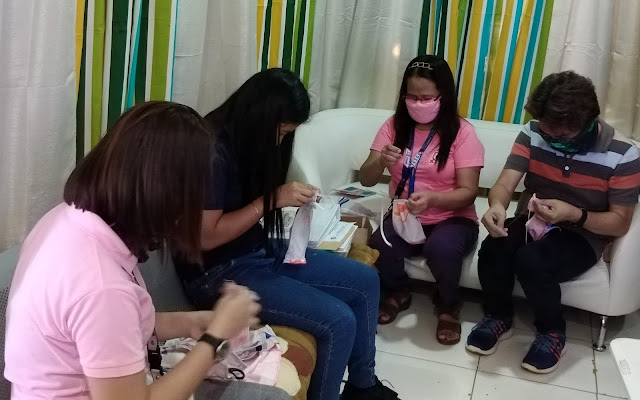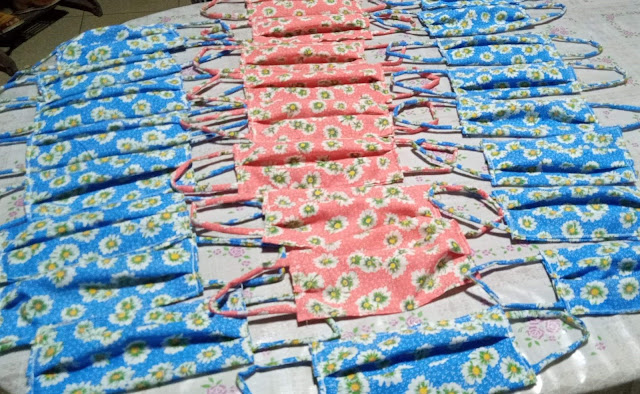In our pursuit of food sustainability
and security, TESDA–Wangan National Agricultural School advocates Foodscaping,
also known as edible landscaping. The concept is a combination of farming and
landscaping to create a beautiful scenery that will feed one’s eyes and tummy.
Introducing creative techniques to design the garden that it grows edible
plants. A better way of growing a functional garden, feeding oneself while
making the garden look attractive.
Foodscpaing Concept is the fresh mandate of
TESDA XI Regional Director, Engr. Lorenzo G. Macapili, DTE, during the
Executive Committee Meeting on May 4, 2020, via Zoom App. The Regional Head
presented the framework of the Foodscaping dubbed as A Journey to the New Normal.
He cited that Foodscaping fits the Filipino culture of Bayanihan System. The
unit of a family in a certain area can plant varieties of vegetables and tend
the garden or farm. They can share the harvest to the neighborhood and have an
exchange of other produce. The surplus harvest can be pooled together for
sharing with others or can be merged for trading to potential market partners.
It promotes welfare, unity, and solidarity in the community while securing the
health, and saves consumption expenses that can be converted to savings.

The project is one step towards
self-sufficiency, productivity, and resiliency. But, it should start with a
skills training intervention by TESDA in organic agriculture production,
preparation of concoctions and garden landscaping or designing. Foodscaping is
a revolutionary concept of food security and availability of food supply at all
times because we can plant a variety of organic vegetables, root crops, herbs,
and medicinal plants every household can consume that.
He added that every employee, either
regular or job orders, must develop and sustain at least twenty square meters
of underutilized spaces in the institution. The challenge cascaded by the
Regional Director to the TTI Heads drew support because it will be a way of
maintaining the cleanliness and aesthetic look of the school while we are still
battling with the pandemic. Because with the current situation, the school only
relies on its strength with the existing workforce–the employees!
As an agricultural institution, WNAS
embraces the project as it fuels another milestone to foster. In response to
this direction, Vocational Instruction Supervisor Engr. Melanie M. Domingo
assigned designated areas to all trainers and staff, including the security
guards to cultivate for the gardening. We developed every vacant space in our
school and even converted the ornamental plant boxes to be planted with
vegetables. Everyone is up for the challenge and started its own version of
Foodscaping.
The potential of these Foodscaping
efforts affects the call for food sustainability to make sure a sufficient
available foods to serve on our table. It only proves that when food security
is at stake, we resort to creatively becoming part of the solution.






























